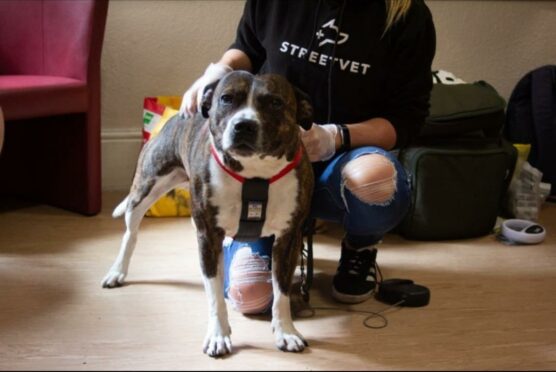A charity that provides veterinary care to homeless pets has arrived in Aberdeen.
StreetVet was founded in 2016 and is a registered practice with the royal college of veterinary surgeons.
Veterinary nurse Miss Stephanie Smith said: “StreetVet was set up to help people who find themselves homeless with pets and need veterinary treatment for their pets. The care includes not just emergency treatment but also vaccines, worming and flee treatment.”
Between 5% and 25% of the UK’s 320,000 homeless people have a pet, with only 7% of them saying they would give up their pet for housing. This is particularly problematic as only 10% of homeless hostels accommodate for pets.
Providing a safe place for the homeless and their pets
Veterinary nurse Miss Nicola Jameson said: “When people become homeless and have a pet they are restricted to the types of services they can receive and often for the homeless their pet is their life line and their companion.
“The homeless often look after their pets better than themselves. To be able to help their pet also helps them.”
Veterinary surgeon Mrs Anne Lawson said: “We’ve got the first accredited hostel opening in London that allows pets.
“Homeless hostels not allowing pets is a huge barrier to homeless people with pets receiving care.”
The ten-point hostel accreditation scheme for taking care of pets includes hostel staff training, provision of pet essentials and in-person veterinary diagnostics and surgery.
A service built on care
A homeless man known as Rob was told his dog would need to be put down after he was told he was being made homeless.
StreetVet intervened to provide the dog emergency care and find Rob and his dog accommodation.
Mrs Lawson said: “The veterinary industry cannot be faulted in terms of how much support StreetVet gets. We’ve got lots of vets and vet nurses as well as labs providing their services at reduced rates or free of charge and referral centres. Street vet is hugely supported by the veterinary industry.
“The hostel scheme is the next big area of development because that’s something that can make really long term lasting change. Rather than deal with one person it would allow us to care for a whole area.”
